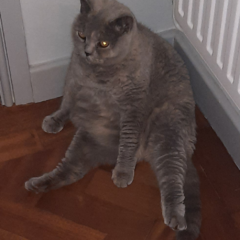-
Topics
-
Bismarck4117 ·
Posted in Laptops and Pre-Built Systems0 -
CoolJosh3k ·
Posted in Displays1 -
gsgloden456 ·
Posted in PC Gaming1 -
2
-
1
-
0
-
kacper6768 ·
Posted in Displays2 -
Minuto ·
Posted in Troubleshooting0 -
Williamgame08 ·
Posted in Power Supplies1 -
3
-
-
play_circle_filled

Latest From Linus Tech Tips:
He Spent 3 YEARS Begging me for a PC. Good Luck Finding it!

















Create an account or sign in to comment
You need to be a member in order to leave a comment
Create an account
Sign up for a new account in our community. It's easy!
Register a new accountSign in
Already have an account? Sign in here.
Sign In Now